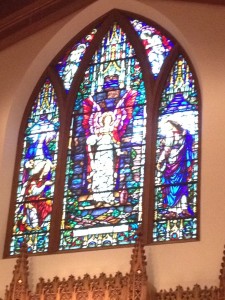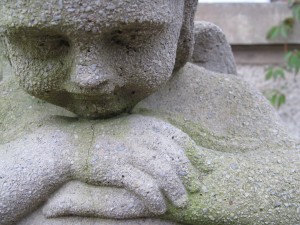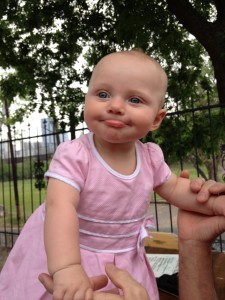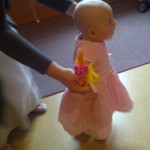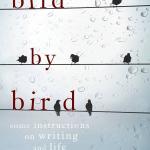“Go, on, say it out loud.”
“When was the last time you let yourself say out loud exactly what your heart is hoping for when it comes to a hopeful change?”
This question came my way this week in an email from hopeful world. It made me think of two things:
Hearing a lecture by church historian Diana Butler Bass at the Consortium of Endowed Episcopal Parishes conference a few years ago when she spoke about nostalgia being the biggest the enemy of hope. If we think that everything in the past was perfect, we have nothing left to hope for.
The second connection I made was Hannah’s story. I love that the Bible includes the stories of women who struggle with infertility, women who knew the aches and pains of hope in an intimate way: Sarah, Rachel, Hannah, Elizabeth. Though we see the pain of each, I’ve personally connected most with Hannah’s story. (1 Samuel 1)
“Though the description was simple—“Hannah had none(children)”—the implications were not. Hannah lived those words out socially, religiously, and deeply personally. In Jewish culture, infertility was viewed as a curse. With no understanding of biology, it was always seen as the woman’s fault and limitation. Though women were generally devalued by society, infertility diminished social status even further.
Religiously, the absence of children was interpreted as personal punishment for sin. As if that shame were not enough, being childless meant that a woman had no place in the ongoing work of God. The Jews understood their primary task to be that of growing a holy people, a nation set apart for God. A woman’s part in that larger story of life was to bear children. If there were no children, she had no part.
The more internally personal implications seem obvious: a deeply experienced inadequacy, a feeling of being overlooked by God, a life-defining mantle of shame. Great, great pain. All these internal dynamics would naturally drive a woman deeper and deeper into hiding. I imagine Hannah walking through her days trying to be as inconspicuous as possible. The idea of living out the glory of her feminine soul, living a life of grace, beauty, and personal dignity must have seemed unimaginable to her. “ The Feminine Soul
Biological infertility is a special kind of pain and loss that I have not experienced and can only imagine. At the same time, most of us have tasted some small elements of this ache. Many women struggle with similar kinds of shame and body issues, infertility being one expression of that angst. Many of us have also suffered the pain of unfulfilled dreams, unsatisfying relationships, or creative ideas that have never born fruit.
In Hannah’s story, I find encouragement to be honest about the pain of it all. Hannah wept and would not eat. Later, she went to the temple and cried so hard the priest thought she was drunk. She voiced her hope no matter how much it hurt.
So, here’s your chance to say out loud exactly what your heart is hoping for. Go, on, say it out loud.






